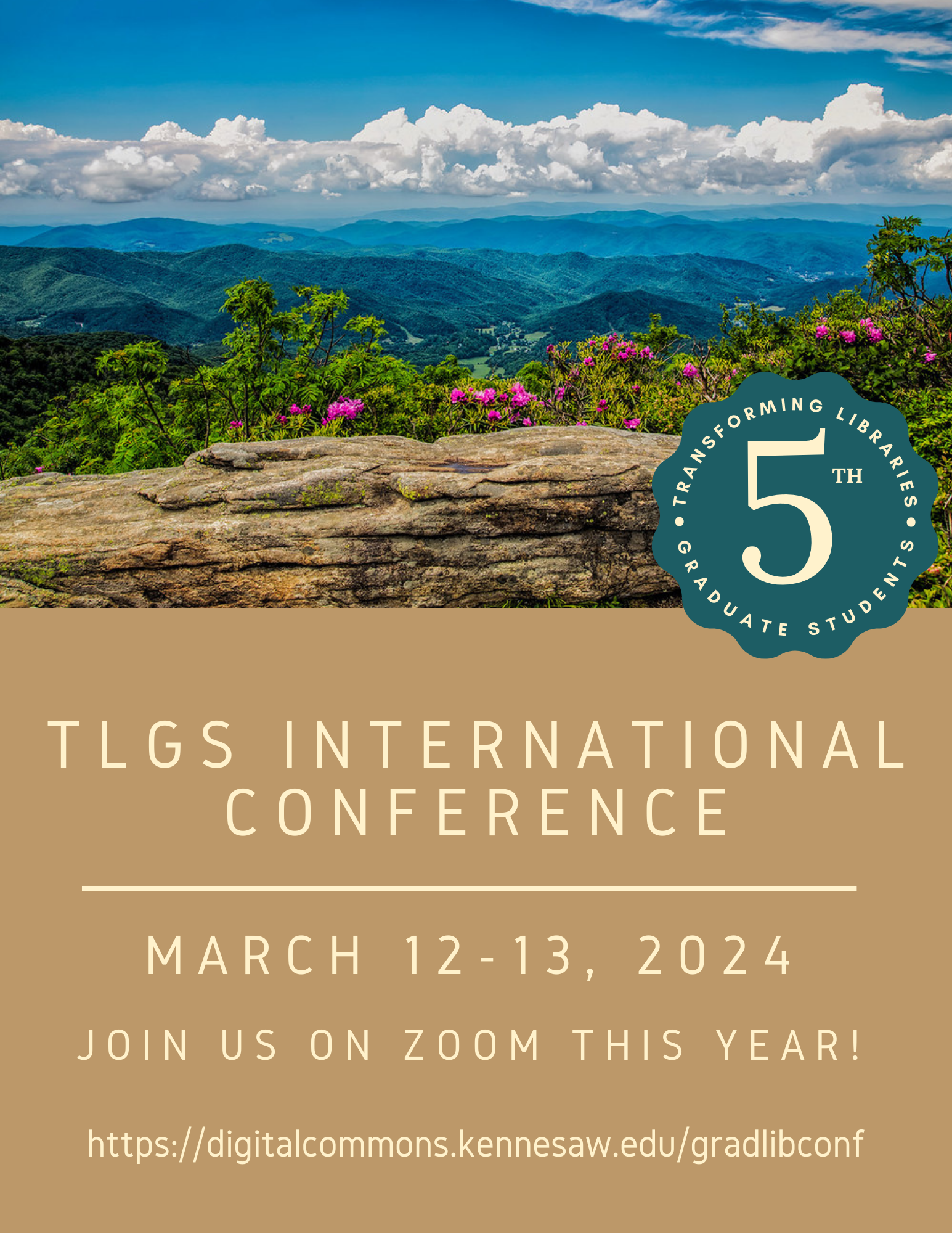Start Date
3-16-2022 2:00 PM
End Date
3-16-2022 2:30 PM
Keywords
qualitative, methodology, public services
Description of Proposal
A primary task of graduate education is developing students who are able to ask valuable questions and use systematic research methods to develop new knowledge. By the end of most graduate programs, students are expected to be able to plan, implement, and share the results of an independent research process and make new knowledge claims. As such, they learn to make - and justify - the many decisions embedded in the research process. Academic libraries support graduate students’ development into independent researchers by providing both collections materials and library services related to the research process.
In this presentation, we turn our attention specifically to the academic library systems that can support graduate students’ development as qualitative researchers. We draw two of our own recent studies to offer a framework for using academic librarians’ cross-disciplinary knowledge and public services experience to build a qualitative research support infrastructure. The studies, both based on in-depth interviews, offer insight into how graduate students and faculty learn to conduct qualitative research and use computer programs for qualitative data analysis and how academic librarians perceive both the potential and limitations of existing academic library structures that support qualitative research. We use the themes from these studies to offer specific ways in which academic library services for graduate students can be developed or enhanced to meet the needs of graduate students across disciplines who use qualitative methods.
We make these recommendations without the expectation that librarians are, or become experts in qualitative methodologies. To the contrary, we see academic librarians’ cross-disciplinary focus and skill in asking the types of questions that help researchers think through their projects as a major strength compared to deep disciplinary or methodological knowledge. We expect that attendees will leave the session with a stronger sense of the types of decisions made during a qualitative research project and better prepared to ask the kinds of questions of students that support reflection on the research process and graduate students’ development into independent researchers.
Asking the Big Questions that Guide Small Decisions: Developing Academic Library Infrastructure in Support of Graduate Students’ Qualitative Research
A primary task of graduate education is developing students who are able to ask valuable questions and use systematic research methods to develop new knowledge. By the end of most graduate programs, students are expected to be able to plan, implement, and share the results of an independent research process and make new knowledge claims. As such, they learn to make - and justify - the many decisions embedded in the research process. Academic libraries support graduate students’ development into independent researchers by providing both collections materials and library services related to the research process.
In this presentation, we turn our attention specifically to the academic library systems that can support graduate students’ development as qualitative researchers. We draw two of our own recent studies to offer a framework for using academic librarians’ cross-disciplinary knowledge and public services experience to build a qualitative research support infrastructure. The studies, both based on in-depth interviews, offer insight into how graduate students and faculty learn to conduct qualitative research and use computer programs for qualitative data analysis and how academic librarians perceive both the potential and limitations of existing academic library structures that support qualitative research. We use the themes from these studies to offer specific ways in which academic library services for graduate students can be developed or enhanced to meet the needs of graduate students across disciplines who use qualitative methods.
We make these recommendations without the expectation that librarians are, or become experts in qualitative methodologies. To the contrary, we see academic librarians’ cross-disciplinary focus and skill in asking the types of questions that help researchers think through their projects as a major strength compared to deep disciplinary or methodological knowledge. We expect that attendees will leave the session with a stronger sense of the types of decisions made during a qualitative research project and better prepared to ask the kinds of questions of students that support reflection on the research process and graduate students’ development into independent researchers.



What takeaways will attendees learn from your session?